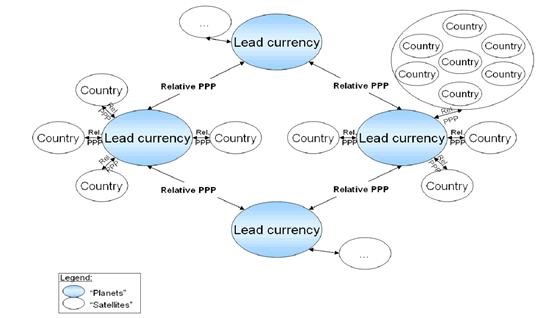Huge gyrations of exchange rates exacerbate the financial crisis and have a severe economic impact around the world, study says
| EMBARGO The contents of this press release and the related Report must not be quoted or summarized in the print, broadcast or electronic media before 19 March 2009, 17:00 GMT (18:00 Geneva) |
Geneva, 19 March 2009 - Exchange-rate adjustments cannot be left to the market and must be subject to multilateral oversight, an UNCTAD report on the global financial crisis says. Changes in nominal exchange rates should reflect differences in rates of inflation between trading countries, the study recommends. That way, real exchange rates will be kept constant, allowing fair competition between producers from different countries and preventing potentially damaging speculation.
The report, titled The Global Economic Crisis: Systemic Failures and Multilateral Remedies (1) , was released today. It was written by economists serving on UNCTAD´s Secretariat Task Force on Systemic Issues and Economic Cooperation in advance of upcoming international conferences on the global economic crisis.
The report notes that the fallout from short-term currency speculation has contributed to sharp collapses in the values of some national currencies as the global economic crisis has intensified. That has made the economic damage of the crisis much more severe for some countries. The Icelandic krona declined by 51% (against the US dollar) in the second half of 2008, for example. And a subsequent wave of devaluations -- reflecting the de-leveraging of speculators´ positions and also the shocks hitting the global financial sector at large -- have included declines of the Hungarian forint (34% against the dollar), the South African rand (38%), the Brazilian real (34%), the Turkish lira (33%), the Mexican peso (29%) and the Chilean peso (28%).
Currency speculation in recent years contributed independently to the build-up of the crisis, the report finds. It says speculative international capital flows are an important source of exchange-rate misalignment and the crisis has exposed the flaws in conventional wisdom about managing exchange rates. Neither steps by individual countries to peg rates firmly against other currencies or to let them float freely prevents potential abuse, and the only solution is a global framework.
Over the past two decades, short-sighted domestic policies and an unregulated international financial system attracted financial investors to leverage the short-term opportunities provided by divergent monetary policies in different countries, the study notes. Under the "carry trade," billions were borrowed from countries where interest rates were low and invested in countries where interest rates were high, generating large short-term profits for investors and artificially inflating the value of the currencies of the capital-receiving countries. As the financial crisis hit, the highly leveraged exchange-rate "bubble" burst.
The first step in stemming such destabilizing effects is to remove most of the incentives for short-term speculation in currencies. In a broader response to the economic crisis, developed and developing countries need a combination of currency stabilization with expansionary monetary and fiscal polices, the report contends. In the absence of such a balanced policy mix, more and more countries will quickly end up on the verge of collapse. Coordinated "countercyclical" macroeconomic policies -- that is, policies to stimulate economic demand during a downturn when demand is falling -- have to be implemented without delay, and these policies should be supported by a global multilateral financial framework. UNCTAD proposes a new multilateral exchange-rate management system that links lead and satellite currencies (either globally or regionally) in a way that would maintain effective real exchange rates at relatively constant levels. (See fig.1)
If every country and every government acknowledges that the global crisis is foremost a systemic crisis -- due to the failure of the global community to govern the globalized economy properly -- then broad solutions, such a global bond that can be used at fixed exchange rates to bail out any needy country may be possible, the report says. It points out that in the current crisis, no country is too big or too small to be allowed to fail.
ANNEX
Figures
Figure 1 - Example of a currency system with "planets" and "satellites"


